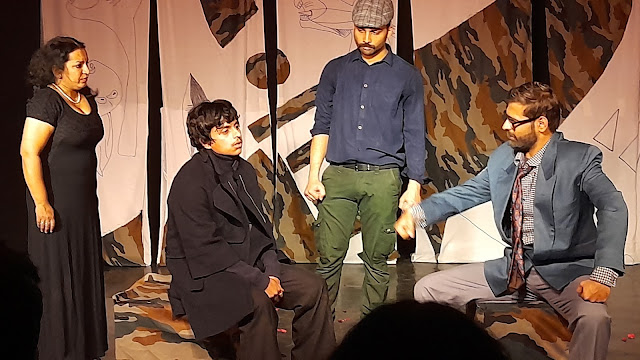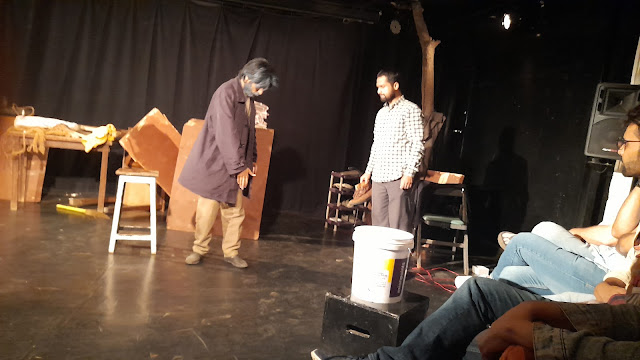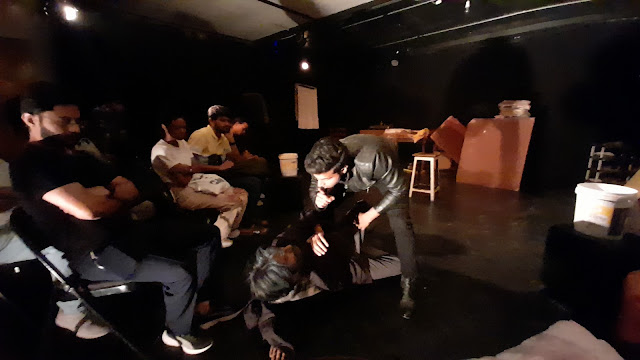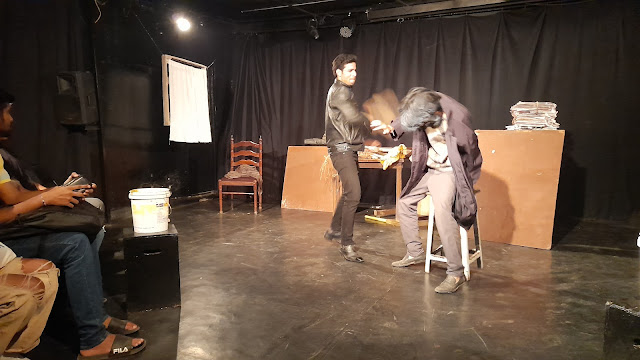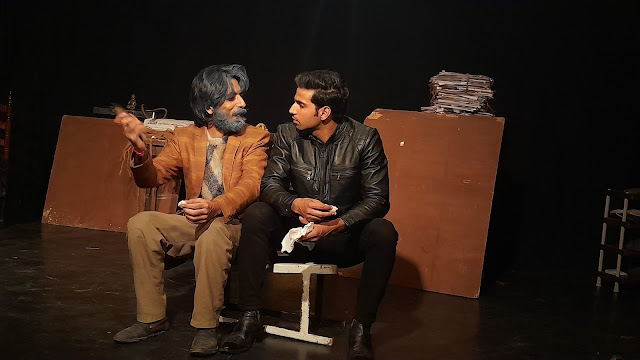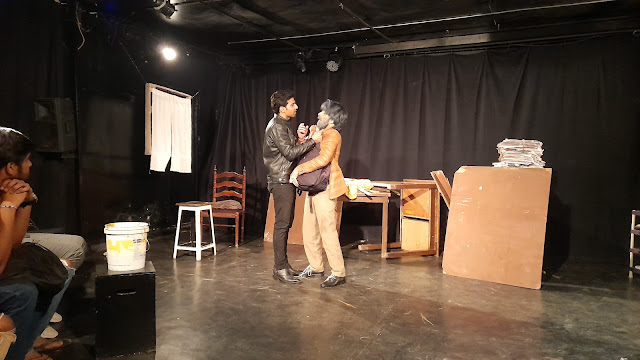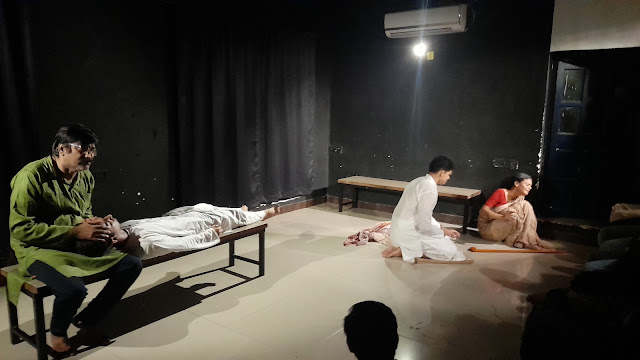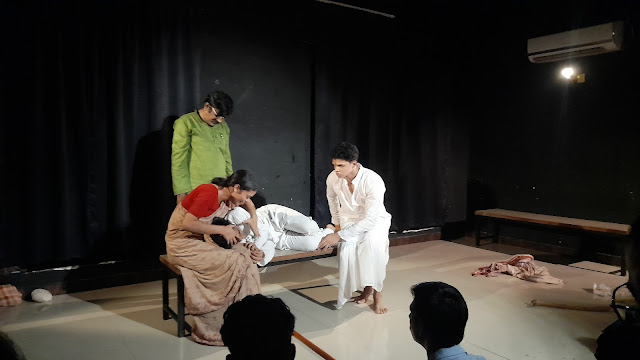Fiancee of first son
( हिंदी में समीक्षा के लिए - यहाँ क्लिक करके क्रम सं. 37 देखिए )
"Our brave fighter pilots were battling for the nation but defective engines supplied by your company compelled them to count their every breath mid-air until they died an unsung but extremely tragic death. Dad, tell me who is responsible for it?"
Since the very outset, the play is highly poignant. The mother has not given up for her son and yet believes that her son has survived the war and is still somewhere alive even after two years of no traceability. And the mother's positive psychological stance on the first son seems to be a thorn in the flesh not only for her second son but also for the girl he wants to marry. Don't get perplexed. Actually the beloved of her second son was earlier the fiancee of her first son. So, the mother thinks it's a breach of trust if she allows that girl to go to the hands of her second son. How can a girl earmarked to the first son can go the second son!
The issue whether the first son of the mother has died or not is an ordeal of filial affection for the mother but it is sheer pragmatism for the second son who is all set to marry the fiancee of her elder brother. On the part of pretty fiancee it initially seems to be a breach of loyalty to her original lover but no sooner than later it comes to the fore that she is absolutely faultless on moral grounds. She presents a handwritten and dated letter written by her said lover about how he was going to die because of breach of norms in supply of the aircraft engine. The brother of the fiancee girl appears in the scene and makes its loudly clear that the father and supplier of aircraft engine is himself responsible for the death not only of his son but all the 21 fighter pilots.
After this the real story begins, whether to supply defective engines was okay for the businessman? The father aka businessman contends that all he did was only for his two sons (one out of two was dead because of his reckless action). He says had he intervened and taken back all the 21 aircraft engines just before the use when he had come to know about the defect, all his reputation earned in decades might have gone in vain. His company might have lost to his competitors in the current scene of booming business.
Both of the second son and the brother of dead first son's fiancee assault on the businessman morally and tear all his defences into pieces. Ultimately the businessman commits suicide. The mother cries on the loss of her husband but then just on another moment shows her composed and happy face thinking that the real culprit of her innocent son's murder is dead.
The whole play is spun with the different threads of dilemmas. The mother's dilemma, the father's dilemma, the second son's dilemma and that of the fiancee all are different. They all face moral questions but all of them come out unharmed except the father whose fault has no acceptable defence. This proves that nation is the top priority in human life, all other affiliations are of lesser importance.
The acting of the father being a playful, happy-go-lucky man was supreme, the second son facing dilemma of loving the fiancee of his elder brother was aptly characterised by the actor. The unforgiving mother in support of her first son also cast good impact. The pretty fiancee girl did justice to her role though more warmth was required in her expression. Her brother is an important connecting character who puts up and anchors the core issue whether family is more important or nation? Though the boy acted well but more finesse is required in terms of impactful dialogue delivery.
Happy Ranjit has been able to take out good performance from all the actors. The play was scripted by the iconic writer Arthur Miller.
The whole play looked to me an interactive dialogue with one's own conscience and this was the testimony of the success of the performance we described above.
Review by - Hemant Das 'Him'
Send your feedback to - hemantdas2001@gmail.com / editorbejodindia@gmail.com
















